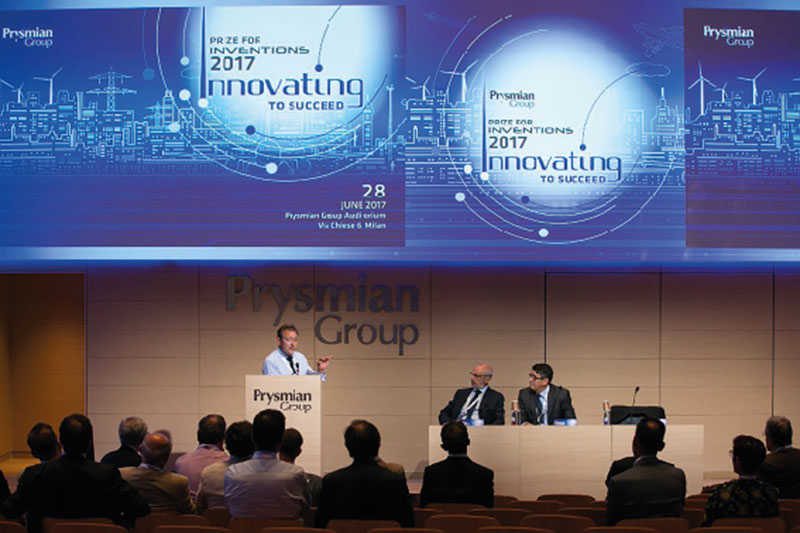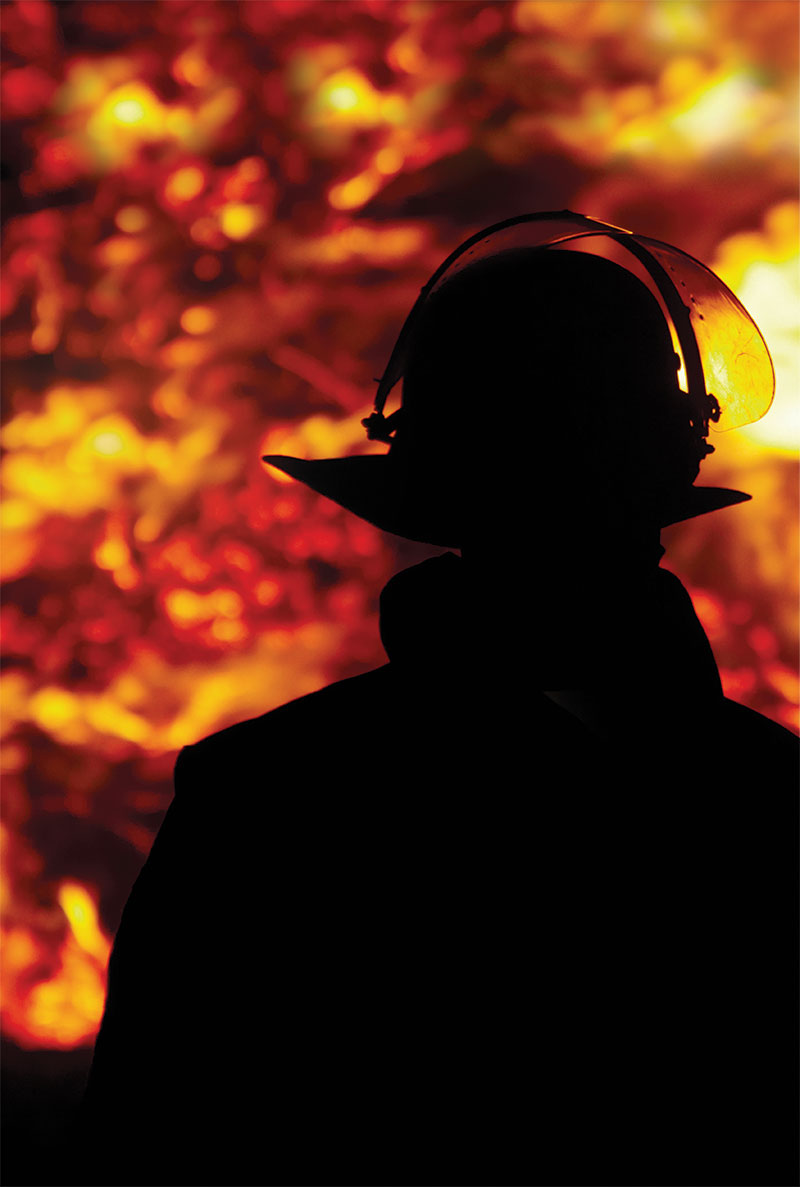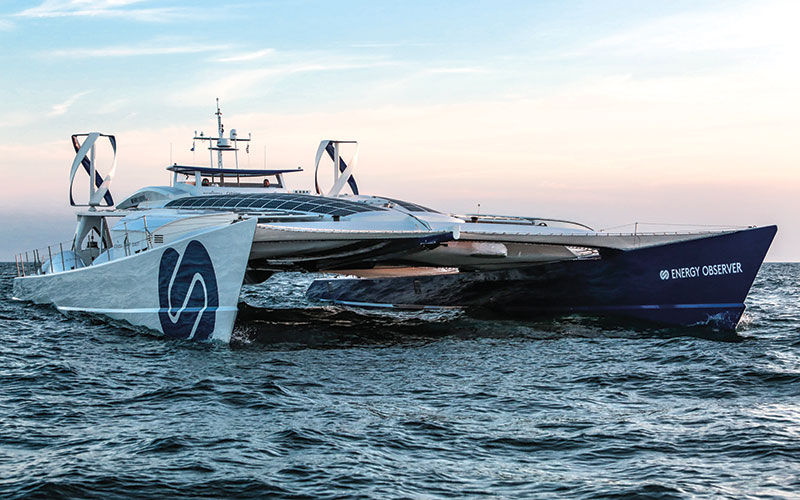Nano technology,
giant innovation
Getting things done
Nano technology, giant innovation
Thanks to the co-operation started with Nanocomp Technologies, Prysmian Group extends its R&D reach to nanotechnologies applications in the cable industry.
Leveraging on the molecular structure of materials to achieve better performance was the goal that inspired the co-operation agreement signed by Prysmian and the US-based Nanocomp Technologies Inc., a world-leading company specialising in the production of carbon nanotube-based products and materials. The two companies agreed to join forces in order to test and improve the use of these technologies in power transmission, power distribution, telecom networks, control and instrumentation applications.
The application areas in which nanoscience is making its biggest impact include electronic, electro-optic and optical products. The transition from semiconductor technology to nanoscale devices has anticipated improved properties and resolution, such as fluorescence labelling, scanning probe microscopy and confocal microscopy. Data storage based on nanostructures provide smaller, faster, and low-consumption systems.
Prysmian has a longstanding interest in nanotechnology, as it is one of the multiple fields that its continuous R&D activity is exploring.
Inventors awarded

We invest every year increasing amounts in research and development, in order to innovate the market and satisfy the demanding requests of our clients.
‘Prizes for inventions’ is the title of a contest launched by Prysmian, aimed at researchers and Group employees from all over the world. In its last edition, the initiative saw 39 patents awarded, each one the result of significant teamwork. At the assignment ceremony, CEO Valerio Battista stated: “Every year, we invest increasing amounts in research and development, in order to innovate the market and satisfy the demanding requests of our clients. I like investing, but I am also aware that investments should yield results: transforming a patent into a business opportunity is our challenge.”
Marcelo De Araujo Andrade, Senior VP R&D, pointed out: “Patents are an advantage for us because we can differentiate our solutions. We are working to accelerate the way in which we develop innovation, in order to respond to the market’s challenging requests faster than ever.”
Four speakers from the R&D department had the chance to present their work and share the business opportunities identified with the audience, which included the company’s top managers.
SUPPLYING FIBRE IN RURAL NEW ZEALAND
The Te Urewera Fibre Installation project, which forms part of the New Zealand Government Rural Broadband Initiative School programme, is another successful project supported by Prysmian Group, that has supplied fibre to rural schools and communities in the Te Urewera area.
Prysmian New Zealand sourced products and solutions within the Prysmian Group network, to help overcome numerous infrastructure and installation challenges to modernise the communication systems in the remote area. An aerial installation was the best suited for the environment. Helicopters were used to erect the cable on nearly all of the power lines because the Te Urewera landscape consists of steep, rugged hills and native bush, making access by land difficult. The Te Urewera project is illustrative of the Group’s commitment to connecting communities with state-of-the-art technology on a global scale.
NO MORE TIME FOR EXCUSES

The Construction Products Regulation (CPR) became mandatory on 1 July 2017, meaning all cable manufactures must test and declare products’ performance and quality within a set of strict parameters.
Under the now-effective CPR, all cable producers across the European Union have to disclose and declare their products’ performance in reaction to fire, according to the EN50575 standard, including flame propagation, heat release, flame spread, smoke production, acidity, flaming droplets and connected factors.
Along with the restrictions and legal obligations, the CPR also offers several benefits, as the Group has frequently underlined in recent years, while pursuing its policy for continuous improvement of industry standards in terms of quality and safety. Prysmian has always supported the introduction of the CPR, with a strong belief that the best support for safety is awareness, underpinned by correct information. Under the new regulation, every cable must be CPR-labelled and must be associated with a DoP related to a specific product or a product family provided that each of them is listed in the same DoP, which must be, by law, in the language of the country where you sell the product.
Prysmian Group is a global public company with safety at its core. Every day, across all of our locations, our employees’ work is subject to rigorous risk assessments, rules and regulations. The CPR represents another standard to which we will always adhere.
Sailing round the world, green-powered

Two years after the round-the-world flight of Solar Impulse, the green journey continues over the seas, with Prysmian as a constant partner.
Achieving sustainable growth, through advanced technological solutions and a responsible business model, has always been a hallmark in Prysmian’s industrial evolution. The company constantly aims to help ‘green’ partners by delivering cables that benefit the future of both our world and their businesses.
In the last three years, Prysmian entered the Solar Impulse project as a Specialised Partner, in which a special solar-powered plane landed in Abu Dhabi after successfully ending the first ever round-the-world flight using only the power of the sun. The Group was a crucial contributor to the milestone achievement in aviation by supplying of 150 km of special aerospace cables that distribute power around the aircraft.
Today, the challenge has moved to the seas, with Energy Observer, the world’s first catamaran powered solely by renewable sources, presented at the Paris Air Show on 20 June 2017. Energy Observer and CEA Liten, the research institute that developed the project, have chosen Prysmian as the official supplier of cables which, due to high performance, reliability and light weight, provide energy generated from renewable sources – both wind and solar – to the vessel’s motor.
Victorien Erussard, a former merchant navy officer and a French sailing champion, was appointed as the boat’s captain, and he said he wanted to circumnavigate the world with a powerful message, similar to the philosophy that drove the Solar Impulse 2 team.
150 km of special aerospace cables that distribute power around the aircraft.
